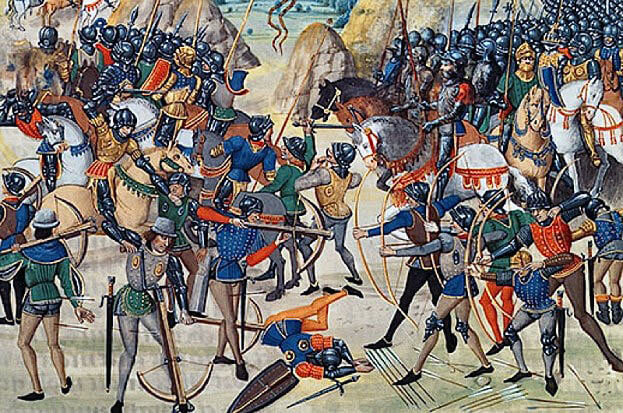Wednesday
It appears that, by appointing John Bolton as National Security Adviser, Donald Trump has added recklessness to incompetence in the management of foreign affairs. Over the weekend, we learned that members of the Trump administration want to attack Iran, as seen in their claim that “Iran has a robust, clandestine nuclear weapons program that it has tried and failed to hide from the world and from its own people.” (Following the resulting furor, they changed “has” to “had” and blamed “a clerical error.”) Bolton was one of the neocons who urged the United States to wage a two front-war following 9-11, bringing to mind the figure of Canterbury in Shakespeare’s Henry V.
Canterbury wants Henry to attack France, and trots out bellicose rhetoric to persuade him:
Gracious lord,
Stand for your own; unwind your bloody flag;
Look back into your mighty ancestors:
Go, my dread lord, to your great-grandsire’s tomb,
From whom you claim; invoke his warlike spirit,
And your great-uncle’s, Edward the Black Prince,
Who on the French ground play’d a tragedy,
Making defeat on the full power of France…
The king, however, worries that the Scots will take advantage of his absence. One of his advisors articulates his concern:
For once the eagle England being in prey,
To her unguarded nest the weasel Scot
Comes sneaking and so sucks her princely eggs,
Playing the mouse in absence of the cat,
To tear and havoc more than she can eat.
Canterbury, like Bolton, Dick Cheney, and Donald Rumsfeld, thinks that his country is so powerful that it can fight on multiple fronts. Take a fourth of your force to France, he advises the king, and leave the rest at home. In a sequence of analogies, he notes that England can achieve multiple victories “without defeat.” If fact, England deserves to “lose the name of hardiness and policy if it cannot “defend our own doors from the dog”:
As many arrows, loosed several ways,
Come to one mark; as many ways meet in one town;
As many fresh streams meet in one salt sea;
As many lines close in the dial’s centre;
So may a thousand actions, once afoot.
End in one purpose, and be all well borne
Without defeat. Therefore to France, my liege.
Divide your happy England into four;
Whereof take you one quarter into France,
And you withal shall make all Gallia shake.
If we, with thrice such powers left at home,
Cannot defend our own doors from the dog,
Let us be worried and our nation lose
The name of hardiness and policy.
Canterbury and Bolton both seem justified in the short run. Canterbury can point to a great British victory and Bolton to the overthrow of Saddam Hussein. Fifteen years after Agincourt, however, the English were on the run, and the psychological and economic costs led to the War of the Roses and the end of Henry’s line.
If Trump adds Iran to Afghanistan and Iraq, Americans can expect a similar future.
Further Note: My Shakespearean colleague Beth Charlebois points out to me that Shakespeare points to this very outcome in the play’s epilogue:
Fortune made his [Henry V’s] sword;
By which the world’s best garden be achieved,
And of it left his son imperial lord.
Henry the Sixth, in infant bands crown’d King
Of France and England, did this king succeed;
Whose state so many had the managing,
That they lost France and made his England bleed…
George W. Bush made both America and the Middle East bleed, and now it appears that Trump wants to do so as well.


